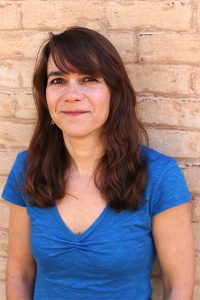 This year the University is rolling out a new “Quality Enhancement Plan” called “Creating Scientists: Learning by Connecting, Doing, and Making.” But it is not only in the sciences that UNC students learn through experience, conduct research, and create their own analyses. These are key elements of the practice of history and the education students receive in UNC history courses.
This year the University is rolling out a new “Quality Enhancement Plan” called “Creating Scientists: Learning by Connecting, Doing, and Making.” But it is not only in the sciences that UNC students learn through experience, conduct research, and create their own analyses. These are key elements of the practice of history and the education students receive in UNC history courses.
One indicator of the deep involvement of history students in research is their continued success in receiving grants from the university to pursue research projects. The Office of Undergraduate Research awards about sixty Summer Undergraduate Research Fellowships (SURFs) each year. Although one might think that students in the sciences would dominate such awards, history students consistently apply for, and are awarded, SURF grants—more so than those from comparable departments like English, Religious Studies, or Anthropology. Between 2003 and 2016, fifty-seven history students were awarded SURF grants. Nearly all of these were members of the senior honors program, undertaking summer research in advance of writing senior theses in history.
Numerous history courses (27 by current count) are classified by the Office of Undergraduate Research as “research exposure courses,” meaning that they include at least one fully realized research assignment. These include courses on modern Eastern and Central Europe, Lumbee history, the Atlantic slave trade, the modern Middle East, North Carolina history since 1865, and oral history. In addition, several other history courses are designated as “research intensive courses,” in which at least half of the course is devoted to students conducting original research and presenting research conclusions.
One set of research intensive courses is the History Department’s capstone for history majors, the “Undergraduate Seminar in History” (numbered HIST 398). Each semester, approximately ten such seminars are offered. Limited to fifteen students, the seminars are taught by renowned faculty, who guide participants through the research and crafting of significant, original historical scholarship. In spring 2017, HIST 398 seminars include “Sports and Politics in the US,” taught by Matthew Andrews; “Nazi Germany,” by Konrad Jarausch; “Comparative Environmental History,” taught by Cynthia Radding; “Rome 154 BC-14 CE,” taught by Richard Talbert; “The Crusades,” by Brett Whalen; and “Modern European Intellectual History,” by Lloyd Kramer. In these courses students start by becoming familiar with major trends in the existing historical approaches to their topics. Then they formulate research topics of their own, drawing on resources available in UNC’s extensive library and archival collections, as well as elsewhere. They are taught how to search for materials, how to organize their notes in database software and other ways, how to structure their evidence in the service of their own interpretations, and how—step by step—to craft a compelling, clear, and even elegant piece of historical writing. The results are often stunning, both to faculty readers and to students who could not fathom at the start how they would rise to such an intellectual challenge. Papers produced by students in these classes have been published in Traces, UNC’s award-winning history journal, as well as in other undergraduate history journals. In Melissa Bullard’s Fall 2016 HIST 398 on Florence, cradle of the Renaissance, Rachel Holcomb ’18 researched and wrote an essay on fifteenth-century Florence’s humanistic ideals portrayed through architecture. Her article on the subject has been accepted for publication in the May 2017 issue of The Michigan Journal of History. The UNC History department awards the author of the best HIST 398 paper of the year the annual Josh Meador Prize at the department’s spring reception. In 2016-17, a record-breaking eleven papers were esteemed so excellent that they were nominated by the professors who supervised their production.
–Lisa Lindsay, Director of Undergraduate Studies
